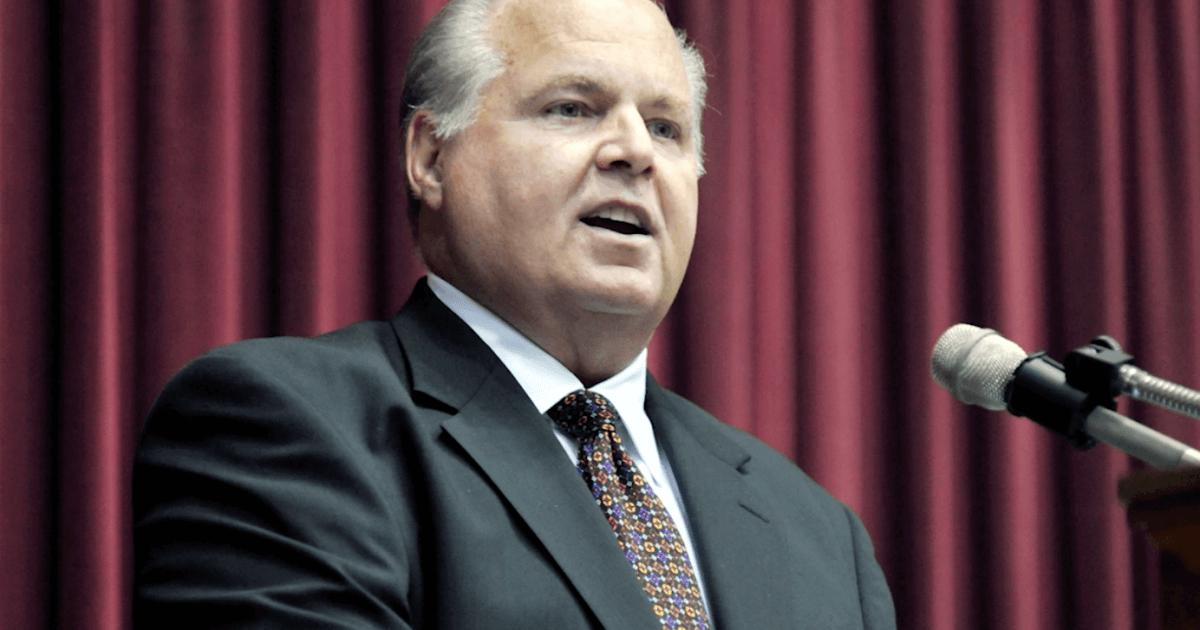Cancer's Emotional Impact
- Radio host Rush Limbaugh, 69, says he doesn’t talk about his advanced lung cancer often because he doesn’t want to be seen as a “cancer patient on the radio.”
- Experts tell SurvivorNet that being vulnerable is an important part of one’s cancer journey.
- Advanced lung cancer means the disease has spread throughout the body, and treatment options could be different.
Since announcing his stage 4 lung cancer diagnosis in February, which means the cancer has spread throughout the body, Limbaugh has occasionally updated fans on his progress. However, over the past few months, he’s kept his health relatively quiet. Just this week, while hosting his talk show “The Rush Limbaugh Show,” the radio host shared that his cancer has progressed after prior scans showed the cancer had regressed and was being maintained. As a result, he’ll need to tweak his treatment.
Read MoreTesticular cancer survivor Matthew Zachary talks feeling seen as a person, not just a patient
Coming to Terms with Cancer
After a diagnosis, emotions such as anxiety, anger, fear, and sadness is completely common and expected. Even though cancer treatment typically takes the spotlight during a person’s cancer journey, emotional well-being is also important. Coming to terms with a diagnosis is a process, and talking about it can be difficult for some. However, accepting yourself while facing cancer can be one of the best ways to lift your spirits.
What the task becomes is having the courage to live in the face of uncertainty, realizing that you cannot necessarily control the uncertainty in life, the suffering that occurs, limitations, challenges both good and bad
“What the task becomes is having the courage to live in the face of uncertainty, realizing that you cannot necessarily control the uncertainty in life, the suffering that occurs, limitations, challenges both good and bad,” Dr. William Breitbart, Chief of the Psychiatry Service at Memorial Sloan Kettering Cancer Center, tells SurvivorNet. “You may not be able to control those, but you have control over how you choose to response to them and the attitudes you take towards them.”
Related: Learn to Forgive Yourself Dealing With the Psychological Aspects of Cancer
By accepting that we can’t control everything in our life, the next step is being vulnerable. Once diagnosed, it’s not uncommon that some people may feel ashamed of their disease, and don’t want to share it with others. However, Limbaugh’s honesty about his treatment process is a step in the right direction. Instead of hiding his disease out of shame, Limbaugh is putting himself out there as a cancer warrior, not a cancer patient.
“Shame comes from this sense of vulnerability There’s something wrong with me because I’m human and I’m susceptible to illness, and now I have an illness. Now I have cancer,” Dr. Breitbart tells SurvivorNet in a separate interview. “What I will often point out to people is that we have the ability to choose how we respond to this vulnerability. We can be ashamed of it. Or we can use it to create a sense of empathy.”
Dr. William Breitbart explains how vulnerability is an important step in one’s cancer journey
What is Advanced Lung Cancer?
Advanced lung cancer refers to when the disease is in later stages, such as stage 3 or 4. When cancer is considered advanced, it means it has spread to other parts of the body such as the brain, liver, or bones. In Limbaugh’s case, he’s currently battling stage 4 lung cancer, and his treatment options may be different than those with diagnosed with earlier stages of the disease.
Related: Treatment for Stage Four Lung Cancer
“Stage 4 lung cancer means that beyond the disease you can see in the chest and the bone and the liver and the brain, there is invariably invisible metastatic disease, and we don’t know which of these spots is going to make you sick,” Dr. Geoffrey Oxnard, former thoracic oncologist at Dana-Farber Cancer Institute, tells SurvivorNet. “We don’t know if it’s the small brain tumor that might give you stroke or seizure symptoms. Or it’s a hidden liver spot that’s going to make your liver become injured and fatigued and nauseated with time. So stage 4 means, treat the whole body. Visible and invisible spots.”
Dr. Geoffrey Oxnard breaks down the basics of stage 4 lung cancer
Learn more about SurvivorNet's rigorous medical review process.


